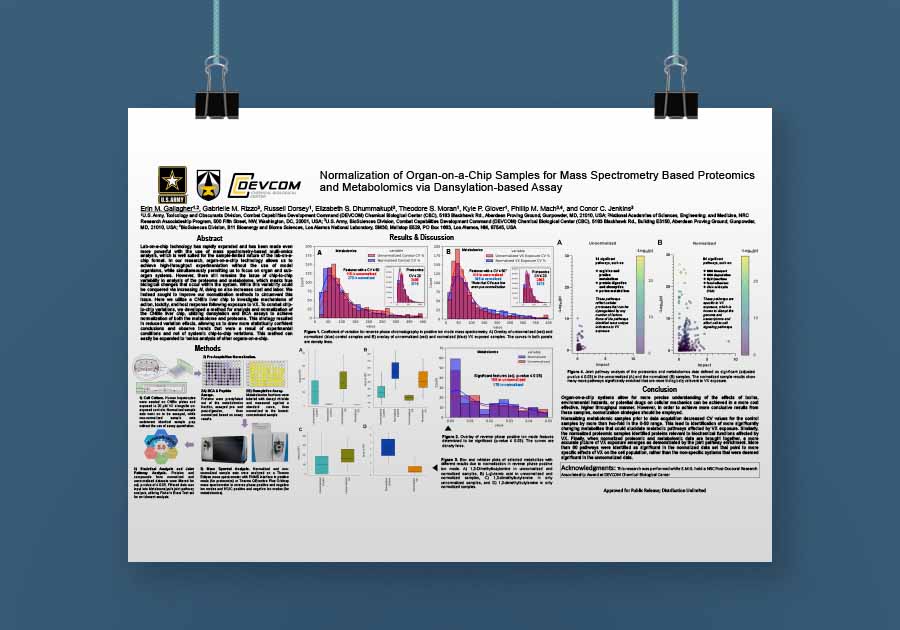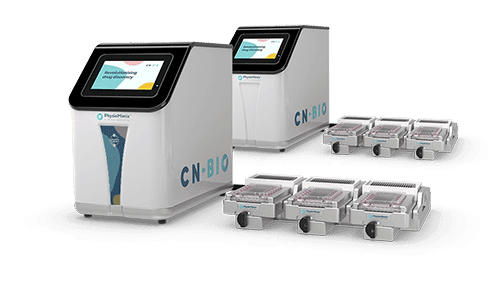Resource > Posters >
Normalization of organ-on-a-chip samples for mass spectrometry based proteomics and metabolomics via dansylation-based assay
Society of Toxicology (SOT) - Chemical Threats & Bioterrorism, US Army
Filed under: ADME and Drug metabolism

Erin Gallagher et al
Mass spectrometry based ‘omics pairs well with organ-on-a-chip-based investigations, which often have limited cellular material for sampling. However, a common issue with these chip-based platforms is well-to-well or chip-to-chip variability in the proteome and metabolome due to factors such as plate edge effects, cellular asynchronization, effluent flow, and overall limited cell count. This causes high variability in label free quantitative workflows, thus masking true biological changes that occur within the system. Solutions to this problem have been approached via data processing tools and post-acquisition normalization strategies such as constant median, constant sum, and overall signal normalization. Unfortunately, these methods do not adequately correct for the large variations, resulting in a need for increased biological replicates.
The methods in this work utilize a dansylation-based assay with a subset of labeled metabolites that allow for pre-acquisition normalization to better correlate the biological perturbations that truly occur in chip-based platforms. This was performed in tandem with a proteomics pipeline employing a BCA protein assay to similarly achieve pre-acquisition normalization. The CN Bio PhysioMimix system was seeded with primary hepatocytes and challenged with VX after 6 days of culture, and the metabolome and proteome were analyzed using the described normalization methods. A decreased coefficient of variation percentage is achieved, more significant changes are observed through the proteome and metabolome, and better classification of biological replicates is acquired as a result of these strategies.

